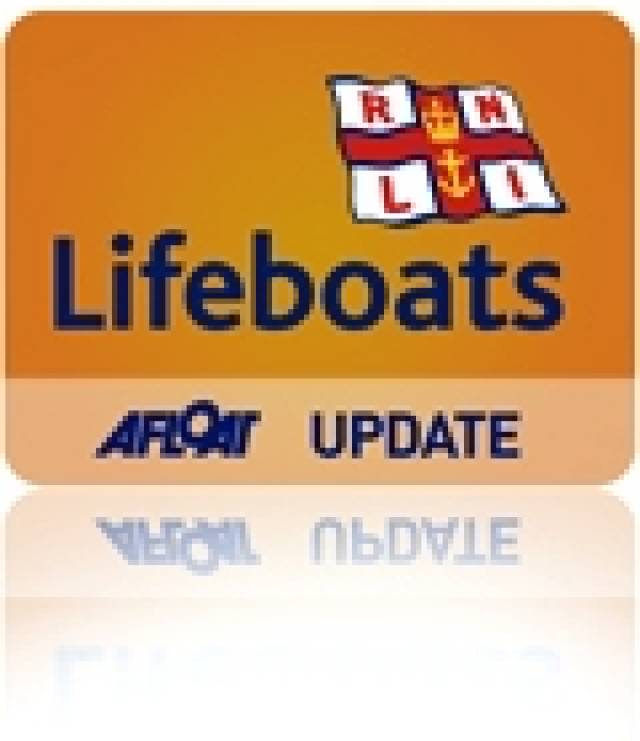#rnli – The volunteer lifeboat crew at Newcastle RNLI got to put their new inshore lifeboat through its paces yesterday (Thursday 4 December) when it was requested to launch hours after arriving at station. The callout came at 6.04am in the morning when the coastguard requested the launch of Newcastle's newly arrived D class inshore lifeboat and all weather lifeboat, following reports that a 56 year old man was missing.
The weather was good and the sea state calm, giving both lifeboats the perfect conditions to carry out an intensive search. In the darkness the lifeboat crew used the search light and night vision to scan the coastline and the new lifeboat was able to move in close to the rocky coastline with the crew using their oars to check the depth. Thankfully the man was located safe on land and the search was stood down at 7.30am.
Following delivery of the £41,000 lifeboat, the crew checked it was operational and Search and Rescue capable before they set to sea. The new lifeboat is fitted with SIMS (Systems and Information Management System), an RNLI-developed means for the crew to control a lot of the boat's functions and has a single 50hp outboard engine. Capable of reaching speeds of up to 27 knots the lifeboat can also be righted manually by the crew in the event of a capsize. Equipment onboard includes both fitted and hand-held VHF radio, night-vision equipment, and a first aid kit including oxygen.
The D class lifeboat was first introduced into the fleet in 1963, and its design has continued to evolve. This new lifeboat for Newcastle in county Down was generously funded through a legacy from Mrs Mary Olga Illingworth in Sheffied, with the request that it be named Eliza in memory of her mother.
Commenting on the arrival of the lifeboat, Newcastle RNLI Senior Helm Richard Burgess said, 'The new lifeboat is great to handle and is a marked improvement on our outgoing one, which gave great service to Newcastle for many years. We are very impressed with the enhanced technology and the addition of AIS (Automatic Identification System) which aids the identification and location of marine vessels. It is fast, powerful and easy to manoeuvre; ideal for launching in a hurry. We are very grateful to the late Mrs Illingworth for thinking of others through this generous legacy in providing this lifesaving vessel.'
Newcastle RNLI Deputy Launching Authority Joe Leneghan added, 'We have a great crew here in Newcastle, who put so much time and commitment into their training on the lifeboat. Therefore it is only right that the RNLI provides the best in lifeboat technology and equipment for them. Saving lives at sea is always down to the lifeboat crew but by providing them with a state of the art lifeboat, which is fully kitted out in the latest in Search and Rescue technology they can locate the casualty faster and bring them home to their loved ones sooner. I wish the lifeboat crew many successful callouts in this new lifeboat and may she always carry them home safely.'
The lifeboat crew on the inshore lifeboat were Helm Richard Burgess and crew Declan Barry and Arron Latus. On the all weather lifeboat was Coxswain Richard Herron, Deputy Coxswain William Chambers, Mechanic Aidan Riley and crewmembers Peter Uprichard, William Wilson, Robert Latus and Daniel Rooney.
































































